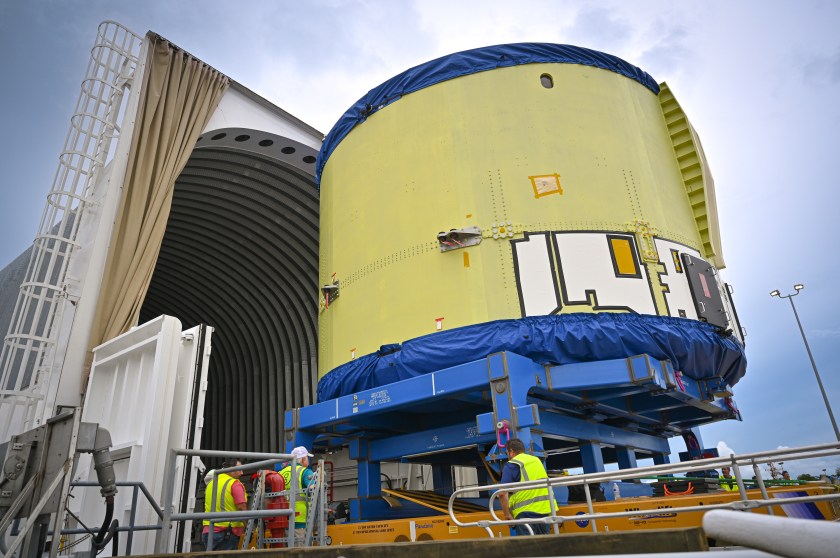NASA is making strides with the Artemis campaign as key components for the SLS (Space Launch System) rocket continue to make their way to NASA’s Kennedy Space Center in Florida. Teams with NASA and Boeing loaded the core stage boat-tail for Artemis III and the core stage engine section for Artemis IV onto the agency’s Pegasus barge at Michoud Assembly Facility in New Orleans on Aug. 28.

The core stage hardware joins the launch vehicle stage adapter for Artemis II, which was moved onto the barge at NASA’s Marshall Space Flight Center in Huntsville, Alabama, on Aug. 21. Pegasus will ferry the multi-mission rocket hardware more than 900 miles to the Space Coast of Florida. Teams with the NASA’s Exploration Ground Systems Program will prepare the launch vehicle stage adapter for Artemis II stacking operations inside the Vehicle Assembly Building, while the core stage hardware will be moved to Kennedy’s Space Systems Processing Facility for outfitting. Beginning with Artemis III, core stages will undergo final assembly at Kennedy.
The launch vehicle stage adapter is essential for connecting the rocket’s core stage to the upper stage. It also shields sensitive avionics and electrical components in the rocket’s interim cryogenic propulsion stage from the intense vibrations and noise of launch.
The boat-tail and engine section are crucial for the rocket’s functionality. The boat-tail extends from the engine section, fitting snugly to protect the rocket’s engines during launch. The engine section itself houses more than 500 sensors, 18 miles of cables, and key systems for fuel management and engine control, all packed into the bottom of the towering 212-foot core stage.
NASA is working to land the first woman, first person of color, and its first international partner astronaut on the Moon under Artemis. SLS is part of NASA’s backbone for deep space exploration, along with the Orion spacecraft, supporting ground systems, advanced spacesuits and rovers, the Gateway in orbit around the Moon, and commercial human landing systems. SLS is the only rocket that can send Orion, astronauts, and supplies to the Moon in a single launch.
For more on NASA SLS, visit: https://www.nasa.gov/sls
